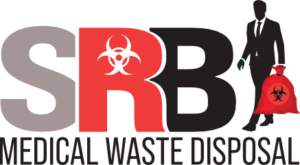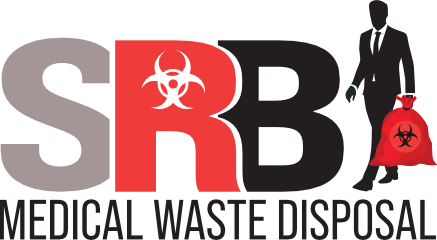Best Practices for Handling and Storing Medical Waste in Texas Healthcare Facilities
Medical Waste Disposal In Texas
Handling and storing medical waste safely is a crucial part of maintaining a secure and compliant healthcare facility. In Texas, strict guidelines regulate how healthcare providers should handle and store medical waste, helping to protect both workers and patients from harmful exposure. This guide covers the best practices for handling, storing, and transporting medical waste safely, with practical tips to ensure compliance and maintain a safe work environment.
�
Categorize Medical Waste Properly
Why it Matters: Proper waste categorization prevents cross-contamination, ensures that each type of waste is handled appropriately, and makes it easier to comply with disposal requirements.
Categories to Use: Divide waste into categories such as sharps, infectious waste, pathological waste, pharmaceutical waste, and hazardous chemical waste.
Tips for Success: Use clearly labeled containers for each waste type and educate staff on the differences between categories to prevent errors.
�
Use Approved Containers for Collection
Why it Matters: Approved containers help prevent leaks, spills, and accidental exposure to hazardous materials. Texas law requires specific types of containers for certain wastes, such as puncture-resistant containers for sharps.
Types of Containers:
Sharps Containers: Made of hard plastic, labeled with biohazard symbols.
Biohazard Bags: Leak-resistant, used for infectious and pathological waste.
Pharmaceutical Containers: Secured containers specifically for expired or unused medications.
Tips for Success: Place containers in easily accessible areas to ensure compliance with waste disposal guidelines and minimize the risk of accidental injuries.
�
Label Waste Containers Clearly
Why it Matters: Proper labeling reduces the risk of misidentification, helps workers understand the contents, and allows for proper handling by disposal companies.
Best Practices: Each container should be labeled with:
Type of waste inside (e.g., “Sharps Waste,” “Infectious Waste”)
Biohazard symbols where necessary
Any specific handling instructions, such as “incinerate only”
Tips for Success: Conduct regular audits of waste containers to ensure labels are intact, clear, and visible.
�
Establish Designated Storage Areas
Why it Matters: Designated storage areas ensure waste is safely contained until disposal, minimizing the risk of exposure and contamination.
Texas Storage Guidelines:
Location: Store waste in a secure, dedicated area away from patient areas.
Ventilation: Storage rooms should be well-ventilated to prevent odor buildup and contamination.
Access Control: Only authorized personnel should have access to the medical waste storage area.
Tips for Success: Implement a schedule for waste pick-ups based on the amount of waste generated to avoid overcrowding storage areas.
�
Train Staff on Safe Handling Procedures
Why it Matters: Proper training helps prevent accidents, reduces the risk of infection, and ensures all staff understand how to handle medical waste safely and in compliance with Texas regulations.
Training Essentials:
PPE Requirements: Teach staff the correct use of personal protective equipment (PPE), like gloves, masks, and goggles.
Proper Waste Segregation: Make sure all employees understand the waste categorization and disposal procedures.
Emergency Protocols: Train staff on spill response, exposure incident procedures, and reporting methods.
Tips for Success: Conduct regular refresher training sessions to keep safety procedures top of mind and address any new regulations.
Schedule Routine Waste Pick-Up with a Certified Disposal Company
Why it Matters: Frequent pick-ups reduce the chance of storage overflow and ensure that waste is processed and disposed of correctly.
Choosing a Disposal Company:
Look for licensed medical waste disposal companies with experience in handling regulated medical waste.
Ensure they provide regular pick-up schedules and have procedures in place for emergency pick-up.
Verify that they follow state-approved disposal methods like autoclaving, incineration, or chemical treatment.
Tips for Success: Establish a written agreement outlining disposal company responsibilities, schedule, and specific handling procedures.
Regularly Inspect and Audit Waste Management Processes
Why it Matters: Routine inspections help catch potential issues early, ensuring compliance with Texas regulations and preventing safety hazards.
Inspection Checklist:
Check container labels and ensure they are intact and legible.
Ensure all storage areas are clean, secure, and free from waste overflow.
Verify that documentation for waste generation, handling, and disposal is accurate and up-to-date.
Tips for Success: Use a standardized checklist for inspections and document each audit to track improvements or recurring issues.
Conclusion
By following these best practices for handling and storing medical waste, healthcare facilities in Texas can create a safer environment for both patients and staff, maintain regulatory compliance, and contribute to better environmental stewardship. Implementing organized processes, using appropriate containers, and keeping up with staff training are vital to safe and compliant medical waste management.
Let's Talk!

